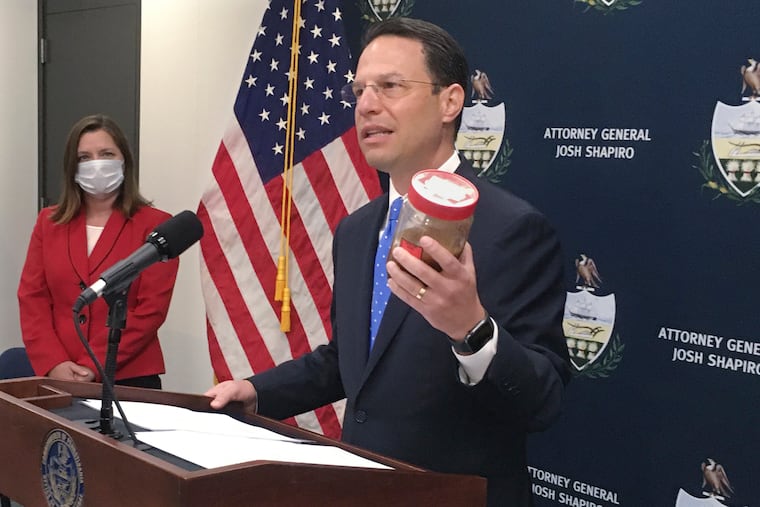Grand jury blasts fracking oversight | Editorial
The report characterizes a powerful industry whose favored nation status among lawmakers led to a regulatory department unequipped to provide the regulation needed to ensure safety.

The temperature on the hotly debated issue of fracking got turned up a few degrees recently when Attorney General Josh Shapiro released a grand jury report highly critical of the state’s regulatory oversight of the industry. The report follows a two-year investigation into the Department of Environmental Protection’s oversight of the unconventional oil and gas industry and found it wanting.
The report blasts failures of the DEP to adequately regulate fracking activities, especially in the early days when the industry first developed a foothold in the state in 2004. Pennsylvania is now the second-largest natural gas producer in the country, after Texas.
Extracting gas from the Marcellus Shale formation involves drilling into rock at enormous depth to fracture it, using a mix of fluids and toxic chemicals to help the process of releasing the gas. This is not an industry that operates at an isolated remove, but is literally in people’s backyards and in the midst of their communities, impacting air and water quality.
The report characterizes a powerful industry whose favored nation status among lawmakers led to a regulatory department unequipped to provide the regulation needed to ensure safety — though the report concedes it has improved. Jurists called out the DEP for its failure to train, regulate, and inspect. It criticized the agency for its “revolving door “of DEP staffers leaving for more lucrative work in the industry.
The report includes recommendations that include expanding no-drill zones, mandating more disclosure of chemicals used, safer transfer of toxic waste, and slowing the revolving door. It also recommends giving the AG’s Office criminal jurisdiction over the companies.
Over the course of two years, the grand jury interviewed scores of current and former DEP employees and heard from 75 families impacted by the gas industry, which included accounts of contaminated drinking water, as well as problems like skin rashes and nose bleeds.
In its response, the DEP dismissed these accounts as “anecdotal” and lacking documentation. It also claims that the report is “not reliable” and that it paints a false picture of its activities and its legal scope. (The AG’s Office issued its own convincing rebuttal to the DEP’s rebuttals.) The grand jury report has also generated criticism as being politically motivated by an AG contemplating a run for governor.
While critical of the DEP, the report should more accurately indict the state lawmakers and elected officials who have aggressively pushed for the industry’s growth in the state without first resolving huge questions about the impact on both humans and the environment — impact that will last far longer than the gas extracted.
The response from many Republican lawmakers, who claimed to be “offended” by the insults lobbed toward the gas and oil industry, are telling — and more damning than any charge lobbied toward the DEP, which has struggled to stay on top of massive challenges.
What’s lost in this fight are the questions we should all be asking: Is this activity safe for humans and the environment? And why are we hesitating to do everything possible to make sure it is safe — or shutting it down if it isn’t?